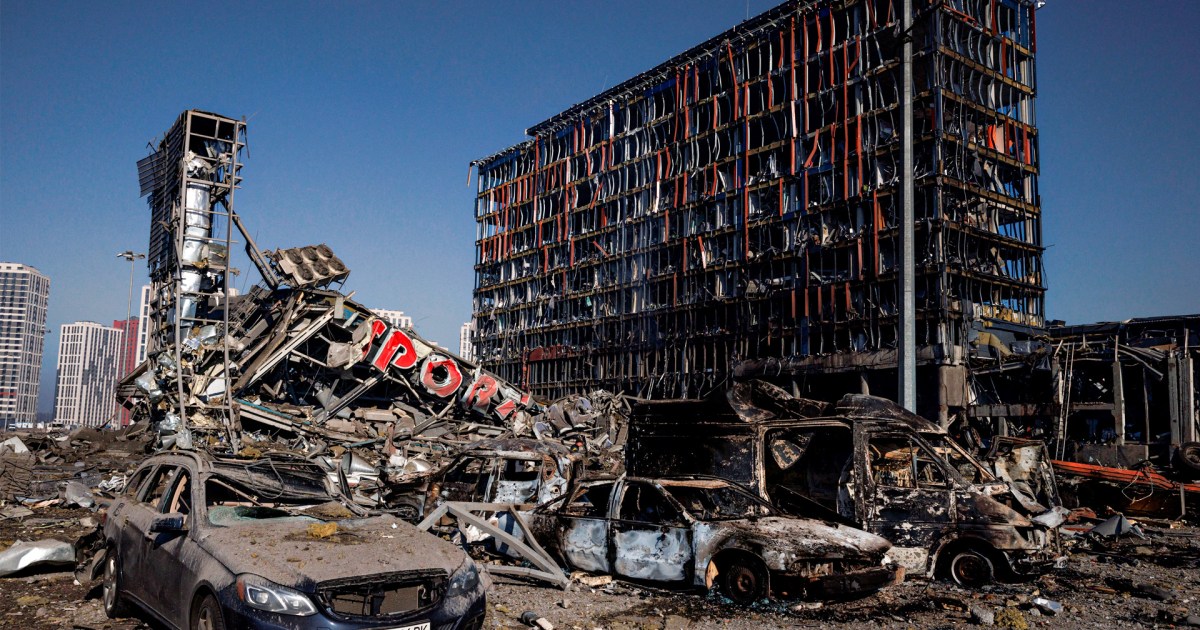Simon Tisdale, foreign affairs analyst for the Guardian newspaper, said the economic effects of the war between Russia and Ukraine could have serious negative political repercussions for leaders in the United States, Germany, France and Britain.
Tisdale added that those effects were already evident in the rising inflation rates and the rising cost of living, and asked: How long will Western democracies maintain the current levels of support they provide to Ukraine?
He wondered: If the masses' desire to make difficult sacrifices subsides in the coming months and the conflict no longer tops the front pages of newspapers, will these masses continue their sacrifices?
In his article in the newspaper, Tisdale believes that Ukrainian President Volodymyr Zelensky is fully aware that the "love of the West" for his country is largely conditional, as military aid is constrained by fear of provoking Russian President Vladimir Putin, and French President Emmanuel Macron is striving "and with excessive enthusiasm" to reach an agreement, with the presence of Potential risks go beyond Kyiv's top interests, British officials claim.
Marine Le Pen, head of France's right-wing National Front party, accused Macron of ignoring his country's domestic problems, as his lead in opinion polls dwindled ahead of two-round elections later this month.
German Chancellor Olaf Scholz is currently focusing his attention on the security of his country's energy supplies, not on the future of Europe's security.
According to Tisdale, Shultz knows that if Putin follows through on his threat to cut off gas supplies, it would create a national emergency.
Schultz's ruling coalition is fractured after a row with the Green Party, which sees the current chancellor and his predecessor, Angela Merkel, overlooked the risks posed by relying on energy imports from Russia.
The foreign affairs analyst in the Guardian believes that this controversy will escalate - not only in Germany - the longer the war continues, and quotes the Center for European Reform in London that Europe should stop spending more than 800 million euros a day on the purchase of Russian gas.
The center said that Russia exported more than 49% of its oil and 74% of its gas to Europe in 2021, and that stopping all these purchases voluntarily may be the most effective sanctions that Europe may impose.
Russia exported more than 49% of its oil and 74% of its gas to Europe in 2021
Russia is exploiting these divisions
According to the article, the weekend joint summit between NATO and the European Union did not produce a long-term plan to defeat Russia or better arm Ukraine's defenders, "but it did raise questions about the leadership" of US President Joe Biden.
In Tisdale's view, the early anti-Putin momentum appears to have stalled, or perhaps even reversed.
Ukraine's Foreign Minister Dmytro Kuleba urged the European Union last week to speed up the introduction of a fifth package of sanctions against Russia, but the EU's High Commissioner for Foreign and Security Policy Josep Borrell stressed that they would maintain the pressure on Moscow rather than escalate it.
According to the writer, Russia is actively exploiting these divisions, and he quotes an official in the Russian Foreign Ministry as saying that “the irresponsible Brussels sanctions have already negatively affected the daily lives of ordinary Europeans, and that Western leaders risked making the conditions of their people worse against the background of recent Russian threats to prevent food exports.” Meanwhile, both China and India came to Putin's rescue by buying Russian oil at low prices.
The writer goes on to say that if the war continues until the fall - as many expect - the economic troubles - especially those resulting from energy prices and the political pressures resulting from them - the boredom of sanctions, the indifference of the masses and the exorbitant financial costs of open military aid, humanitarian relief campaigns and millions of refugees are all Factors may combine to undermine government support for Ukraine in its war against Russia.
The article concludes that Putin is watching the situation waiting for fatal cracks to emerge, yet he nevertheless faces serious tensions and challenges at home, according to the observations of the directors of Western intelligence services last week. Perhaps this is how the war will end, not with fanfare or through an unfair deal, but with a slow collapse.

